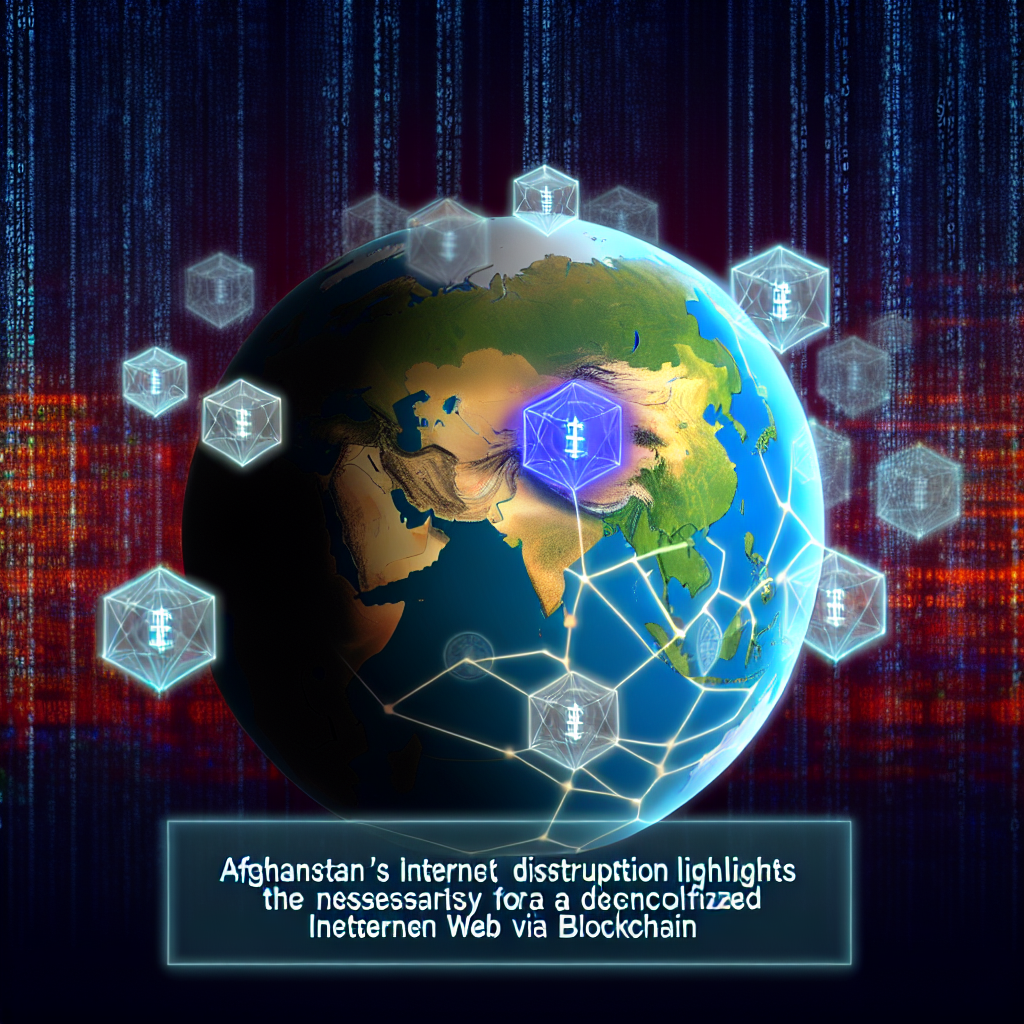Afghanistan’s recent nationwide internet outage highlighted a significant vulnerability in the world’s top decentralized blockchains: their reliance on centralized internet providers that can be susceptible to government interference and technical issues.
The nation experienced a near-total internet shutdown lasting approximately 48 hours, with connectivity restored on Oct. 1, as reported by Reuters reported. The outage was allegedly ordered by the Taliban administration, although officials later cited “technical issues” related to fiber optic cables.
While blockchains aim to offer a public, censorship-resistant network for value transfers, their dependence on centralized internet providers makes these functions problematic during outages.
“The Afghanistan blackout is not merely a regional connectivity crisis: It is a wake-up call,” stated Michail Angelov, co-founder of the decentralized WiFi platform Roam Network. “When a few centralized providers monopolize connectivity, the promise of blockchain can vanish overnight,” he added.
The nationwide internet and mobile data outage impacted around 13 million citizens, according to a September report from ABC News. This was the first nationwide internet shutdown under Taliban rule, following earlier regional restrictions imposed in September to limit online activities perceived as “immoral.”
The Taliban denied any intentional ban, attributing the internet outage to technical issues, including fiber optic cable malfunctions.
Iran has also been grappling with internet censorship issues since the onset of its conflict with Israel.
The Iranian government restricted internet access for 13 days in June, allowing only domestic messaging apps, leading Iranians to search for hidden internet proxy links for temporary access, The Guardian reported on June 25.
Related: $11B Bitcoin whale returns with $360M BTC transfer after 2 months
DePIN projects are constructing decentralized internet infrastructure
The Afghanistan outage provides impetus for decentralized connectivity solutions that eliminate single points of control.
Decentralized wireless networks are emerging as viable alternatives to centralized internet providers, as part of a wider technological movement known as decentralized physical infrastructure network, or DePIN.
Roam aims to create a smartphone-driven decentralized wireless network that crowdsources mobile signal data to generate a “living map of connectivity.”
With the upcoming implementation of eSIM, this allows devices to automatically choose the best available internet options, including public carriers, private mesh, or peer-powered local networks.
“Roam users can see in real-time what works where: No guesswork during outages,” ensuring a connection even when “centralized backbones fail,” said Angelov.
Related: $10B in Ethereum awaits exit as validator withdrawals surge
World Mobile stands as the largest decentralized network with 2.3 million daily active users across over 20 countries, according to data from worldmobile.io.
The project surpassed $9.8 million in total revenue in August, representing earnings distributed among AirNode operators, stakers, and other contributors.
Helium ranks as the second-largest decentralized wireless network, operating in over 190 countries with a total of 112,000 hotspots globally. It claims to have more than 1.3 million daily users on its decentralized network.
Users are incentivized to host a hotspot for internet coverage through Helium (HNT) token rewards.
Proponents argue that the potential of blockchain technology for financial freedom and censorship resistance cannot be fully realized until the underlying internet infrastructure itself becomes more decentralized.
As Angelov remarked, “If decentralization is limited to the protocol layer, we haven’t truly addressed the issue — we’ve merely shifted the locus of control.”
Magazine: Most DePIN projects barely even use blockchain — True or false?

